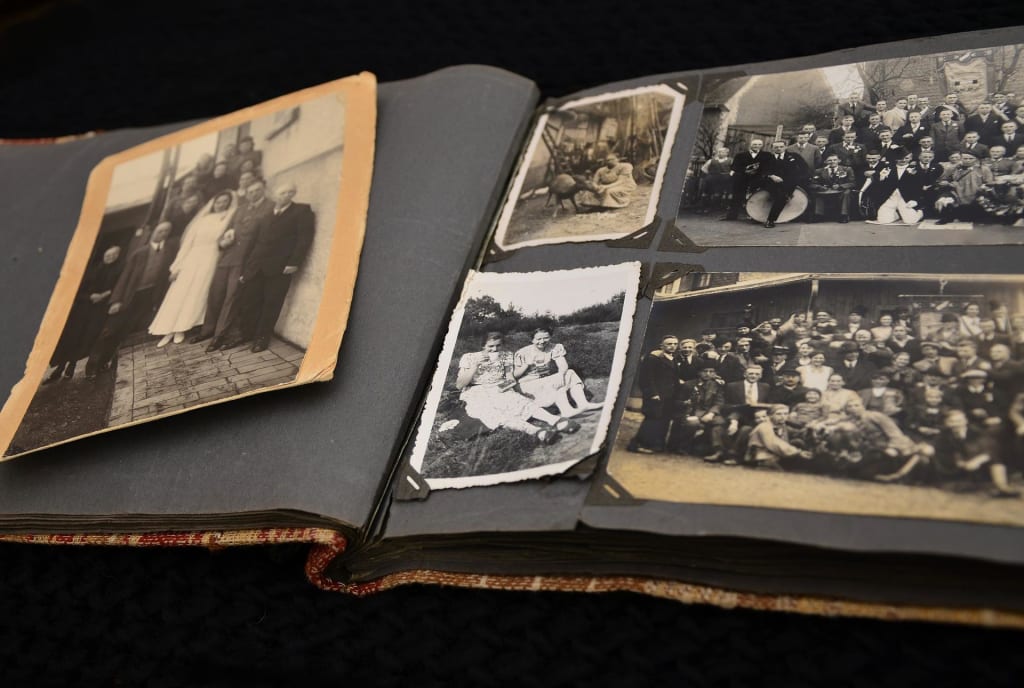Read this article if you feel stuck in the past
Read this article if you feel stuck in the past

At least one of the following scenarios is likely to have occurred to you:
You've lost someone you care about.
You went suffered a heartbreaking breakup.
You said or did something you wish you could take back in time and change.
Maybe you've gone through all three. I'm sure I have. These are the kinds of events that leave a mark on your personality. While some people are able to accept them and move on, others find it difficult to let go.
Nobody is advising you to forget about your past. You are who you are because of your experiences and recollections. However, there is a distinction to be made between visiting the past and settling down there permanently.
Why do you think you're locked in the past?
The author of The Body Keeps The Score, Bessel van der Kolk, points out the following astonishing facts:
One out of every five Americans has been sexually assaulted.
One in every four people grew raised around alcoholics.
Physical violence has occurred in one out of every three couples.
From this vantage point, there's a strong possibility you or someone close to you has been through a horrific event that has left an indelible mark on their mental, emotional, and even physical health.
When you have a traumatic encounter, your memory becomes encased in the incident, making it impossible to move ahead or create new memories. The regions of your brain connected with pleasure, control, and trust are literally rewired. It's no surprise that enjoying the current moment has grown difficult.
Aside from trauma, there are a variety of other situations that are difficult to overcome.
Perhaps you made a poor decision about which you feel guilty or regret.
Perhaps you've lost someone and are left with an unquenchable yearning. You might even cling to the past because you fear forgetting or betraying a loved one if you let go.
For many, it's simply a nostalgic yearning for a simpler time when they had more freedom, excitement, or joy.
Whatever the case may be, it can be difficult to pinpoint this as the cause of your disengagement from your current life, lack of energy, or dissatisfaction.
Author Joe Dispenza explains it like way:
"Your ideas and emotions are anchored in negativity and impossible when your body and mind are both living in the past. When this perspective becomes ingrained in you, your mind and body become trapped in a cycle of negative ideas and feelings.
These loops can be debilitating at times, preventing you from reaching your objectives, feeling joyful, or making wise judgments."
How to figure out if you’re living in the past
I’m a two-time immigrant, so I know how to tell whether you're living in the past.
The first time was in 1993, when my family relocated from Russia to California, and the second time was in 2015, when I moved to Spain.
On both times, I met two types of immigrants: those who were settling into their new lives, learning the language, meeting new people, and attempting to start over. Those who clung too stubbornly to their previous lives, never really allowing themselves to progress.
What was the distinction between these two people?
Those who had a difficult time adjusting to and accepting their new lives usually had something (or someone) they couldn't let go of.
It caused them to feel a mixture of regret, nostalgia, and dissatisfaction with their current status. It held them in a bizarre limbo – their physical bodies were in one location, but their emotions and minds were in another.
Between the past and the present, the same thing happens. You're physically in the present. But you're still stuck in the past emotionally. Here are a few indicators that this is happening to you:
- You daydream about the past and how things were when you were younger, wishing you could travel back in time.
- You can't or won't forgive someone because you have a grudge against them.
- You keep blaming yourself for the mistakes you've made in the past.
- You experience nightmares or dreams that come back to haunt you.
- You cling to physical items that you no longer require.
- You constantly replaying traumatic events in your mind.
- You don't seem particularly enthusiastic about the future, and you don't have many plans to look forward to.
- Friends and family may remark that you appear to be "somewhere else."
- Your mind replays specific memories from the past, making it difficult for you to sleep.
Perhaps all you need is some time to let go. However, if this continues for months or years, it's safe to assume that your past is robbing you of your present and even future.
What can you do to break the cycle?
"There have been occasions recently when I wished I could go back in time and fix things. I can't alter the past, but I can improve the present so that when it does, it will be a past worth having." Terry Pratchett (Sir Terry Pratchett) is a British
The first step to escaping the past is to recognise the negative feelings and beliefs that have kept you there in the first place.
Paying attention to your thought patterns and where you mentally stay during the day could help you figure out where they're coming from.
After you've gained some insight, consider whether there's anything specific you can do to assist you go forward or improve how you feel.
Alternatively, as Eckhart Tolle suggests:
"Focus on the one thing you can do now rather than the 100 things you will or may have to accomplish in the future."
This could entail talking to someone about how you're feeling. Choosing to get support from a therapist and move through trauma is another option.
It could be as simple as accepting responsibility for your own happiness for some people.
It's easy to let blame and bitterness boil for years when someone hurts you. But here's the unpleasant reality: even if what happened wasn't your fault, you're still responsible for fixing it. No one else will be able to help you.
Other practises and specific activities you may begin right now to assist you bring yourself into the present moment are as follows:
- Self-hypnosis. Give Michael Sealey a listen if you're new to this. He's a master of hypnosis.
- To focus your mind and train yourself to spend more time in the present, practise meditation.
- Any activity that gets your blood pumping.
- Showers with cold water to bring your body into the present moment.
- To remind yourself of what you're grateful for right now, start or end your day with thankfulness.
- Get rid of any physical items you don't need. This simple exterior action can communicate to your subconscious that you're ready to let go and move on.
Finally, some thoughts
It is impossible to change the past by dwelling on it. Instead, it merely increases your chances of feeling regret later in life. In ten years, you'll understand you had the opportunity to break free from this habit and go forward, so why wait?
You've already taken the first step toward bringing yourself back into the present moment by becoming aware of how much time you spend mentally in the past.
You'll feel better the more you do this.
Things like acceptance and forgiveness won’t happen overnight, but as soon as you realize that it’s the only way forward, you can start making progress.






Comments
There are no comments for this story
Be the first to respond and start the conversation.